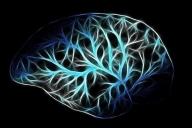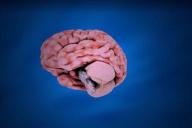brain activity
A new discovery: Love leaves its marks – how love changes your brain
In the realm of romantic connections, a study by CU Boulder neuroscientists involving prairie voles reveals a biological signature of desire, shedding light on why we feel a stronger pull towards certain individuals. The research shows that the neurotransmitter dopamine plays a crucial role in nurturing long-term bonds.
Kate Yakimchuk research in love affection relationship Psychology 30 January 2024A new discovery: Dopamine boost – how exercising improves your brain work
A recent study explored why exercise improves cognitive performance and found that dopamine, a chemical related to pleasure and motivation, plays a key role. The experiment indicates that the increase in dopamine during workouts is connected to quicker reaction times during exercise.
Kate Yakimchuk research exercising dopamine health facts Psychology 30 January 2024A new discovery: Staying focused – how to focus on tasks better
Our ability to focus on tasks is influenced by things like motivation and alertness. It can be hard to stay focused, especially when a task is boring or repetitive.
Kate Yakimchuk research concentration remote work Psychology 24 January 2024A new discovery: Studying Alzheimer's – a new promising data
In 2016, MIT conducted a study on Alzheimer's and found that flickering light at a certain brain rhythm might help. Now, a new review by MIT in the Journal of Internal Medicine looks at what scientists worldwide have learned since then in many studies.
Kate Yakimchuk research dementia treatment Psychology 22 January 2024A new study: Memory transfers are real!
They discovered that the brain's memory areas actually store information like a photographic negative, which is the opposite of what we see. This means that when we look at something, the parts of our brain that process what we see become active, while the memory areas become less active.
Kate Yakimchuk research memory forming science neurons Psychology 21 January 2024A new study: Brain communication – it's tied to proteins
Scientists discovered that a protein called phosphorylated -synuclein, which is associated with diseases like Parkinson's and Lewy body dementia, also has a role in how the brain communicates normally. When a phosphate ion is added to -synuclein, it changes the way the protein looks and behaves.
Kate Yakimchuk research science health Psychology 21 January 2024A new discovery: It might be dangerous – soccer heading leads to brain function issues
Sportsmen often have traumas that can affect their health, and not all of these traumas are easy to see right from the start. A recent study indicates a connection between soccer heading, where footballers hit the ball with their head, and a quite noticeable decline in the microstructure and function of the brain over two years.
Kate Yakimchuk research brain damage cognition intelligence Psychology 19 January 2024A new discovery: Robotic arms – they can be smarter!
While movies and video games often show smart and functional robotic limbs, the real ones are actually neither that functional nor convenient. Neuroengineer Silvestro Micera is working on using technology to help people regain lost sensory and motor functions due to traumatic events or neurological disorders.
Kate Yakimchuk research Psychology 19 January 2024A new discovery: Alzheimer's dementia – new ways to predict it
A new discovery shows that the severity of amyloid deposition in the brain may determine who benefits from anti-amyloid therapies for Alzheimer's disease. Scientists found that the buildup of toxic amyloid beta clumps, which are associated with Alzheimer's, accelerates as people get older.
Kate Yakimchuk research dementia health Psychology 18 January 2024A new discovery: Organiods – a new method to research human brain
The team of scientists has developed a new model of the human brain called organoids. These organoids can generate the major cell types found in the cerebellum, which is important for movement, cognition, and emotion.
Kate Yakimchuk research human brain science Psychology 18 January 2024A new discovery: Panic attacks – it hides there
Scientists are studying panic attacks to understand how they happen in the brain. They found a brain circuit that is tied to panic disorder.
Kate Yakimchuk research fears anxiety Psychology 17 January 2024A new study: Brain cells that make mice live longer
New research shows that communication between the body's organs plays a big role in aging. As we get older, these lines of communication deteriorate, and organs don't receive the messages they need.
Kate Yakimchuk mice research information Animals 17 January 2024A new study: Unexpected situations – researching specific brain cells
Have you ever wondered what happens in your brain when you face some unexpected situations? Scientists have discovered something new in their research about chandelier cells, a special type of brain cell.
Kate Yakimchuk research nervous system body Psychology 16 January 2024A new discovery: Love is blind – and now we know why
You've probably heard that love is blind, or that people who are in love can sometimes do silly things – but why? A team of specialists decided to discover more about this topic, and they seem to find at least one of the possible answers to that.
Kate Yakimchuk research in love science hormones Psychology 15 January 2024A new study: Slow waves – your epilepsy protection
Specialists conducted a study that revealed the presence of slow waves in the brains of people with epilepsy even when they are awake. Normally, these slow waves are observed during sleep.
Kate Yakimchuk research health Psychology 12 January 2024A new discovery: Brain chemistry – how dopamine levels affect you
Specialists studied dopamine to understand how the brain learns from positive and negative experiences. They discovered that dopamine release in the human brain is vital for learning from both rewards and punishments.
Kate Yakimchuk dopamine experience research mental health Psychology 12 January 2024A new discovery: Age-related memory loss – how it works
As we get older, our memory can start to decline at different rates for different people. They studied factors that could affect memory decline in both younger and older people.
Kate Yakimchuk research age health Psychology 10 January 2024A new study: Hypnotizability – how scientists can change it in you
Hypnotizability, which refers to how easily someone can be hypnotized, is a stable trait that doesn't change much throughout adulthood. However, scientists have discovered a way to temporarily increase hypnotizability using electrical stimulation of a specific area in the brain.
Kate Yakimchuk research hypnosis science Psychology 9 January 2024Psychologist's insights: Deja vu – learn more about it
Many people experience deja vu in their lives, or at least think that they experience it. This effect, which makes you feel like you've already seen some new things before, can be quite amazing.
Kate Yakimchuk facts science effects Psychology 1 January 2024A new study: It's time to ignore the irrelevant things – just be bilingual
If you can't ignore the irrelevant data easily, then try learning a new language - it might help! A recent study suggests that individuals who speak two languages might have an advantage in shifting their attention between different tasks compared to those who speak only one language.
Kate Yakimchuk research foreign languages personality tips Psychology 31 December 2023


















